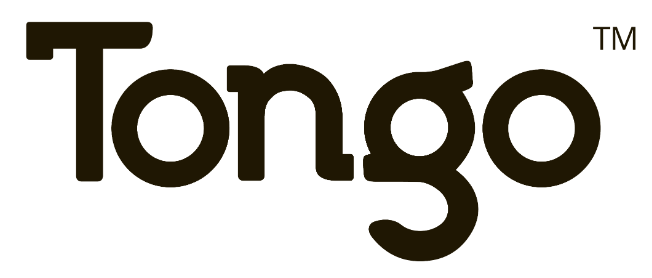Your Personal Brand as a Realtor
Tell the world who you are: The art of personal branding for real estate professionals
The topic of personal branding and how to project your ideal version of self is one that has been discussed for centuries. You can learn how to…be yourself, change yourself, model other’s behaviors, be a renegade, blend in, stand out, follow the leader, or be a leader.
The truth is much simpler: at varying points in your real estate career, you will need to do all those things (sometimes in the same day).
While there are many things you can do to stand out, there are four basic qualities you need to demonstrate to attract the key buyers and sellers you want to reach. You want to be seen as:
- Competent. While this may seem obvious, it’s surprising how many people want to show off their cleverness and uniqueness to the exclusion of all else. Those qualities are great, but it’s the routine paperwork, the timely emails, the mundane calculations that most clients need done every day. Show that you can manage the necessary as well as the brilliant, on demand.
- Reliable. Can you consistently drive results? Clients will see for themselves once you’re hired, but right now you need to reassure them.
- Congenial. The elements of your personal branding and your real estate branding should be professional, friendly, affable, and free of attitude and ego.
- Empathetic. Put yourself in the place of clients who are either spending or trying to receive hundreds of thousands (or millions) of dollars. While you live in this world every day, they may only make transactions two or three times in their lives. Understand their concerns, fears and frustrations and how to help them chart a path forward.
Clients are looking for real estate professionals who can solve problems, not create them. No matter how capable you are, clients (and firms) will be reluctant to take you on if they think you’ll be a headache. The self you present needs to be just a good—or better—than the work itself.
Curate this: how to master your online presence
Social media gives you an extraordinary opportunity to build your brand, show your sales, and learn from and interact with industry leaders and experts with whom you may never have otherwise come in contact.
While, of course, your professional social media should be separate from your personal life, neither should be a living public record of dumb stuff you said or did, unenlightened viewpoints, petty grievances, and questionable associates. Assume that any information publicly available online will be given at least a cursory look by existing and prospective serious about working with you. Twitter, Instagram, Facebook, LinkedIn, YouTube, TikTok, Snapchat, Reddit, Quora and whatever comes next is all fair game.
Here are some steps to take to refine your social media presence…
- Google yourself—Naturally. You may be surprised at what you find. If unflattering photos of you come up or the mug shot of some other “John Smith” rises to the top, clearly you have some remediation to do.
Jenna: “When you google ‘Jenna Maroney’ now, I come up, not the Jenna Maroney who electrocuted all those horses.”
Liz: “Jenna, that was you.”
--30 Rock, “Dance Like Nobody’s Watching”
- Raise your privacy shields—If your personal social media footprint is too large to parse, or if displaying your holiday party table dancing photos means that much, you can block public access while keeping your professional accounts open to all.
- Delete or hide unflattering photos, videos, comments, replies—Do this for all platforms you leave open to the public. You know the drill: anything sexually explicit, racist, homophobic, politically charged (“That so-and-so should not be elected Dog Catcher!”), and just plain nasty needs to go. Err on the side of caution: do not be photographed holding alcohol or making 2-fingered (or 1-fingered) gestures, or re-tweet or share questionable content from others.
It’s not just actors and CEOs who get canceled over ill-thought tweets dug up from years past. It happens to plenty of real estate people you never heard of—and still more diminish their chances of generating top commissions. Just because you’ve shared something in the past, you’re under no obligation to continue sharing.
- Connect with leaders in the field—Follow leading real estate professionals, firms, influencers, trade journalists and trade organizations. Engage with them, comment favorably on projects and progress they post online (if you like them; better to say nothing if you don’t), and don’t be afraid to ask polite, meaningful questions (“What was your strategy in attracting and qualifying applicants for that new construction?”).
- Show your best work—Twitter, Instagram and LinkedIn are great places to show the sales you’ve made and the clients you’ve helped. And, of course, if you’re doing community or volunteer work, be sure to post that as well (“Had a great time today with Habitat for Humanity…”).
- Show enthusiasm—Express confidence about your work in the real estate industry and your excitement at being a part of it. Enthusiasm is uplifting and by showing positive energy, you will attract positive interest.
- Politely ask for help—At any time in your career, it’s acceptable to ask for help or referrals. Be polite and respectful of people’s time and interest—if you get no response, don’t sweat it and move on.
The care and feeding of websites
You probably already share a page or have your own page through your firm. While you may not control the navigation or design, make sure the content and links are up to date. Nothing will torpedo your personal branding and real estate branding more than a barren site showing an old or “shot on iPhone” headshot, greatest hits from the 20-teens, and broken links to defunct mortgage originators.
It’s not who you know—it’s who they know: building your professional network
“Networking” is one of those overused words like “strategic” that has lost it meaning over time. At its essence, it means making business connections where you may be able to add value and vice versa. You likely have a network, even if it’s not formally codified anywhere besides the numbers in your phone.
Building a robust network can save you time and effort in finding clients, building professional relationships, and getting different points of view on the industry. You’re probably already on LinkedIn (if not, join), but whether you use LinkedIn or some other form of contact management, here are some tips to help you get started:
- Who you know—Chances are, you know more people than you think you do. Connect with alumni, former colleagues, friends, family, neighbors, and members of your religious, social, civic, or volunteer organizations.
- Professionals you’ve met at conferences and tradeshows—Of course, much of the appeal of going to a conference or trade event, either virtually or in real life, is meeting new people in the profession. Politely reach out with a reminder of how you met and leave the door open to share ideas and information in the future.
- Trade organizations—Membership in trade organizations can put you in touch with a much wider group of like-minded professionals than you could ever meet on your own. However, there are many such groups, and some offer a better value for money. Before you or your firm pays for a membership, check out the services, reach, and leading members. Is the organization quoted frequently in trade and business press? Are well-known leaders in the field on the board or in positions of influence?
- Make beneficial connections for others—You need to give to receive. If the only time you turn to your network is when you need something, it will eventually dry up. You need to be willing to go out of your way to make connections, give referrals, and help when it is of no (immediate) benefit to you. If you can help someone in your circle, chances are they will respond favorably, or refer you favorably, when you need assistance.
Personal branding adds value
Certainly, most of your consumers spend much of their time and attention on digital media. A highly polished and maintained personal brand and digital presence have the power to differentiate you from the pack. You’ll be able to reach more of the clients you want, as often as needed, and keep them engaged with what you have to offer.

